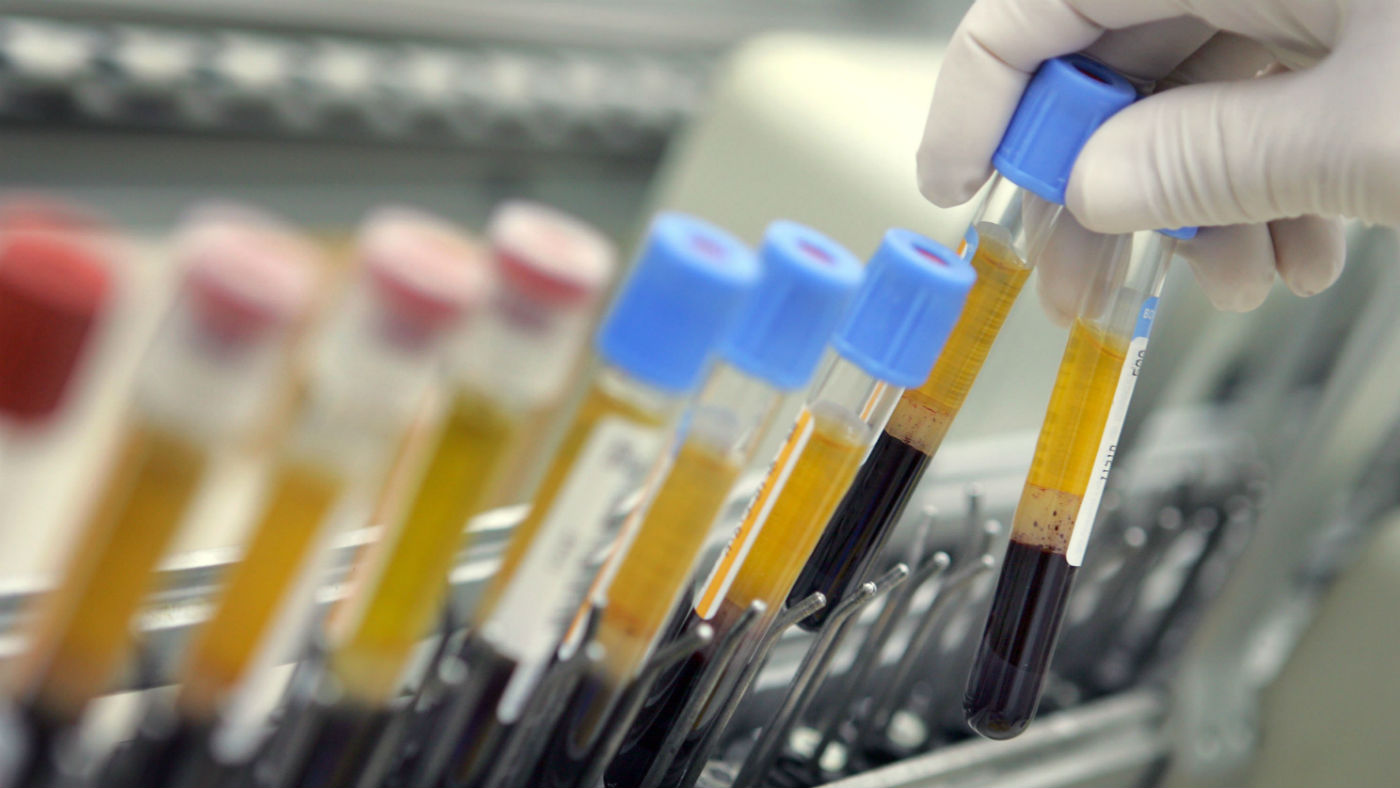NHS to give 'bionic eyes' to ten blind patients
Sufferers of retinitis pigmentosa will receive the £150,000 treatment next year

A free daily email with the biggest news stories of the day – and the best features from TheWeek.com
You are now subscribed
Your newsletter sign-up was successful
The NHS is to fit "bionic eyes" on ten people with an inherited form of blindness.
Five patients suffering from retinitis pigmentosa will receive the Argus II Bionic Eye at Manchester Royal Eye Hospital next year, with another five being treated at Moorfields Eye Hospital in London.
They will be fitted with a retinal implant that interprets images captured by a tiny video camera on a pair of glasses, the BBC reports. The video is then sent wirelessly to the implant, which reads it as patterns of light and dark that patients learn to interpret into partial vision.
The Week
Escape your echo chamber. Get the facts behind the news, plus analysis from multiple perspectives.

Sign up for The Week's Free Newsletters
From our morning news briefing to a weekly Good News Newsletter, get the best of The Week delivered directly to your inbox.
From our morning news briefing to a weekly Good News Newsletter, get the best of The Week delivered directly to your inbox.
Keith Hayman, 68, from Lancashire, who received a trial implant in 2009, said he now has some sight after two decades of darkness.
"I can now tell when my grandchildren run towards me and make out lights twinkling on Christmas trees," he said. "These little things make all the difference to me."
There are an estimated 16,000 Britons living with retina pigmentosa, of whom 160-320 could be eligible for the £150,000 treatment. As gene and stem cell therapies do not show evidence of working, the bionic eye is the only current method to restore some vision to the completely blind, The Guardian reports.
Professor Paulo Stanga of the Manchester Royal Eye Hospital, who was involved in earlier trials, said he was delighted the NHS has chosen to fund the treatment.
A free daily email with the biggest news stories of the day – and the best features from TheWeek.com
"It surpassed all of our expectations when we realised that one of the retinitis pigmentosa patients in Manchester using the bionic eye could identify large letters for the first time in his adult life," he told the Press Association.
The ten patients will be monitored following the operation to see how far the eye improves their everyday lives and assess whether the treatment should be offered to more people.
-
 Film reviews: ‘Send Help’ and ‘Private Life’
Film reviews: ‘Send Help’ and ‘Private Life’Feature An office doormat is stranded alone with her awful boss and a frazzled therapist turns amateur murder investigator
-
 Movies to watch in February
Movies to watch in Februarythe week recommends Time travelers, multiverse hoppers and an Iraqi parable highlight this month’s offerings during the depths of winter
-
 ICE’s facial scanning is the tip of the surveillance iceberg
ICE’s facial scanning is the tip of the surveillance icebergIN THE SPOTLIGHT Federal troops are increasingly turning to high-tech tracking tools that push the boundaries of personal privacy
-
 Captain Tom charity closes to donations amid daughter’s pool row
Captain Tom charity closes to donations amid daughter’s pool rowSpeed Read Hannah Ingram-Moore to appeal council order to demolish spa complex at her home
-
 The Week Unwrapped: Sex and health, the Earth’s core and another new year
The Week Unwrapped: Sex and health, the Earth’s core and another new yearpodcast Is the NHS failing British women? What’s going on at the centre of our planet? And what’s in a date?
-
 National nursing strike: should the patient ‘always come first’?
National nursing strike: should the patient ‘always come first’?Talking Point Recent YouGov poll found that 65% of public approves of strike action
-
 The science behind lab-grown blood
The science behind lab-grown bloodfeature Development of ‘absolute game changer’ could help those with sickle cell and other conditions
-
 ‘Moving CBBC online isn’t modernisation – it’s dangerous’
‘Moving CBBC online isn’t modernisation – it’s dangerous’Instant Opinion Your digest of analysis from the British and international press
-
 The Week Unwrapped: Quitting China, social age checks and dental deserts
The Week Unwrapped: Quitting China, social age checks and dental desertspodcast Why has AirBnB given up on China? Are social networks finally taking age limits seriously? And why is it so hard to find a dentist?
-
 ‘Negotiation with Putin would be a moral disaster’
‘Negotiation with Putin would be a moral disaster’Instant Opinion Your digest of analysis from the British and international press
-
 The Week Unwrapped: Home-working pay cuts, Taiwan and Cinderella
The Week Unwrapped: Home-working pay cuts, Taiwan and Cinderellapodcast Should people who work from home earn 20% less? Is Taiwan at risk of a Chinese invasion? And what does the failure of Andrew Lloyd Webber’s latest production tell us about post-Covid theatre?